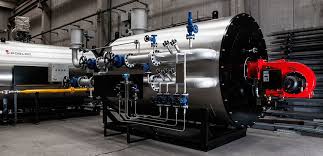
Nov . 12, 2024 18:26 Back to list
thermal oil boiling point
Understanding the Boiling Point of Thermal Oil An Essential Element in Thermal Systems
Thermal oil, also known as thermal fluid or heat transfer fluid, is a crucial component in various industrial processes that require efficient heat management. Its primary function is to transfer heat from one area to another in thermal systems, such as in heating, cooling, and energy production. A critical property of thermal oil is its boiling point, which significantly affects the performance and efficiency of thermal systems.
What is Thermal Oil?
Thermal oil is typically a synthetic fluid engineered to operate at high temperatures without evaporating or degrading. Unlike water, which becomes vapor and loses its heat transfer capability at 100 degrees Celsius (212 degrees Fahrenheit), thermal oils can work efficiently at much higher temperatures, often exceeding 300 degrees Celsius (572 degrees Fahrenheit) or even reaching up to 400 degrees Celsius (752 degrees Fahrenheit) depending on the type of oil used. This characteristic makes thermal oil ideal for applications such as industrial heating, concentrated solar power plants, and even food processing.
The Importance of Boiling Point
The boiling point of thermal oil is significant for several reasons. Firstly, it determines the maximum operational temperature of the thermal system. If the operating temperature exceeds the boiling point, the thermal oil will vaporize, leading to a loss in heat transfer efficiency and possibly damaging the system. Furthermore, vaporization can create pressure buildup within the system, which might result in leaks or catastrophic failures if not managed properly.
Secondly, the boiling point influences the design of thermal systems. Engineers must account for the boiling point when designing heat exchangers, piping, and other components to ensure that these elements can withstand high temperatures and pressures without compromising safety or performance. This is particularly important in industries where precise temperature control is critical, such as in the production of pharmaceuticals or specialty chemicals.
thermal oil boiling point

Selecting the Right Thermal Oil
Choosing the appropriate thermal oil for a specific application requires an understanding of the required boiling point alongside other properties such as viscosity, thermal conductivity, and thermal stability. Various types of thermal oils are available in the market, each formulated to cater to different operational requirements.
For instance, mineral-based thermal oils offer a lower cost and adequate performance in many applications, while synthetic thermal fluids provide higher boiling points and better thermal stability. Some synthetic oils can operate effectively at temperatures above 400 degrees Celsius, making them suitable for high-temperature processes.
When selecting a thermal oil, it is vital to consider not only the boiling point but also the thermal oil's long-term performance characteristics, such as oxidative stability and potential for coking. Regular monitoring and maintenance of the thermal oil quality are also essential to ensure its optimal performance over time.
Conclusion
The boiling point of thermal oil plays a fundamental role in the operation of thermal systems. Understanding and selecting the right thermal oil is crucial for optimizing efficiency, safety, and longevity in various industrial applications. As industries continue to evolve and demand more efficient energy solutions, the development and application of high-performance thermal oils will become increasingly important. With innovations in thermal fluid technology, there is potential for even greater efficiency and safety in thermal management systems, making it imperative for engineers and industry professionals to stay informed about the latest advancements in thermal oil formulations and applications.
-
Oil Fired Hot Water Boilers Sale - High Efficiency & Affordable
NewsJul.31,2025
-
High-Efficiency Commercial Oil Fired Steam Boiler for Industry
NewsJul.30,2025
-
High-Efficiency Biomass Fired Thermal Oil Boiler Solutions
NewsJul.30,2025
-
High Efficiency Gas Fired Thermal Oil Boiler for Industrial Heating
NewsJul.29,2025
-
High-Efficiency Gas Fired Hot Water Boiler for Sale – Reliable & Affordable
NewsJul.29,2025
-
High Efficiency Biomass Fired Hot Water Boiler for Industrial and Commercial Use
NewsJul.29,2025
Related PRODUCTS






















